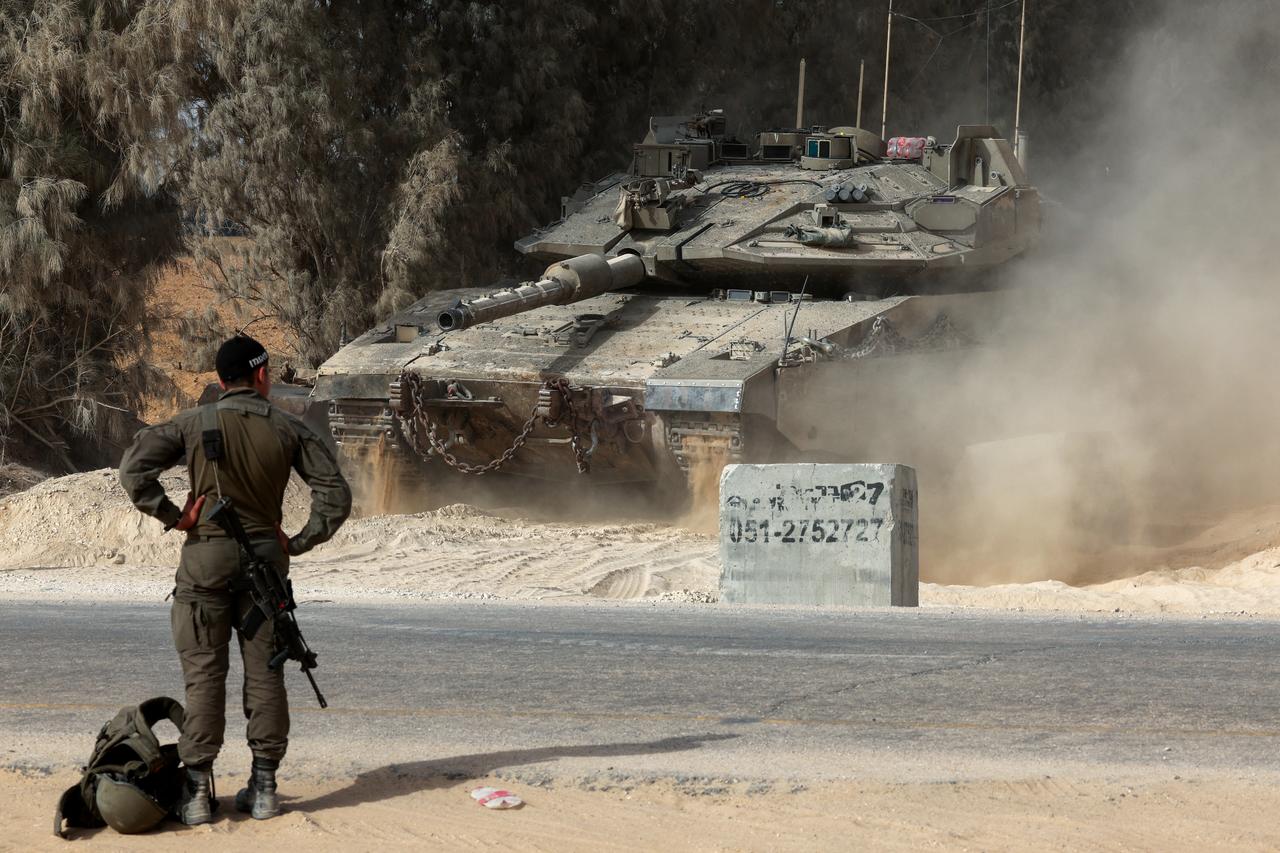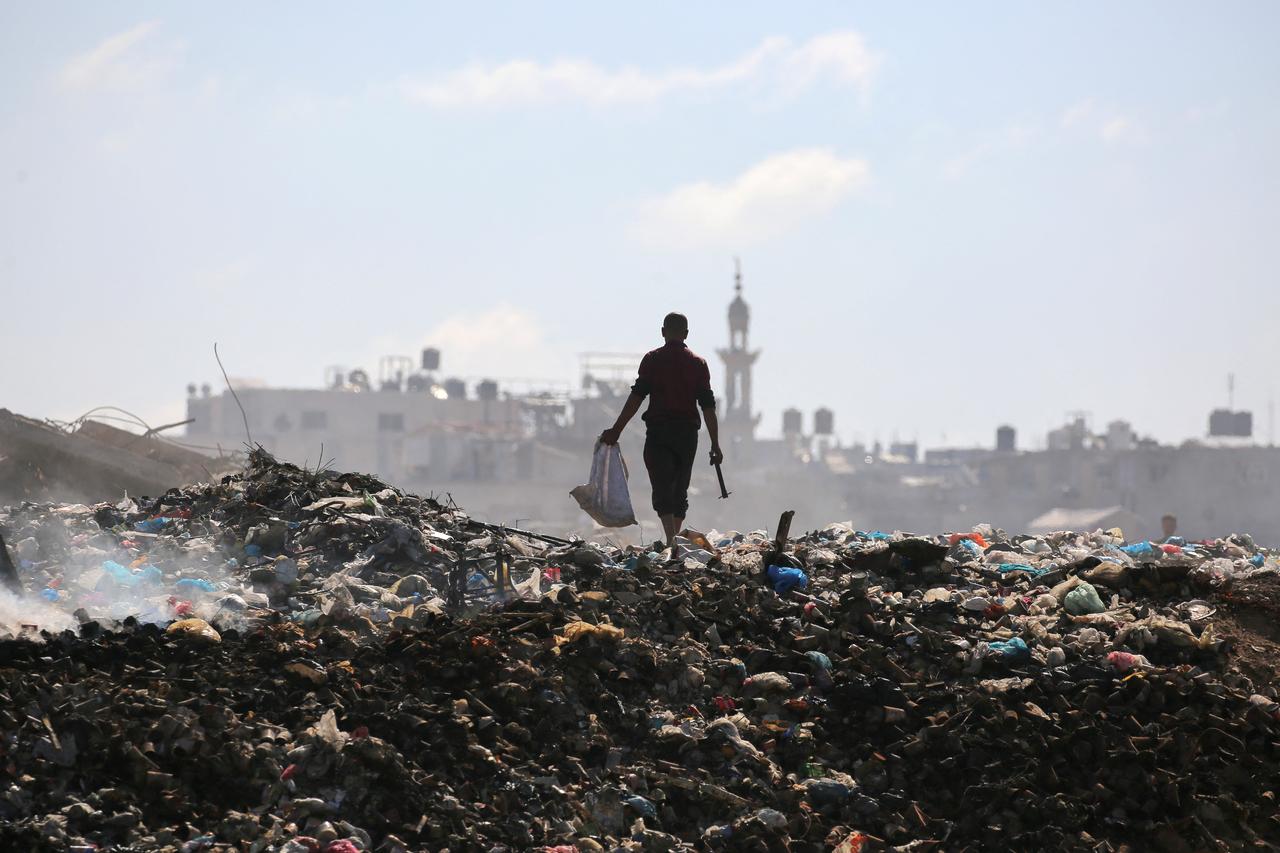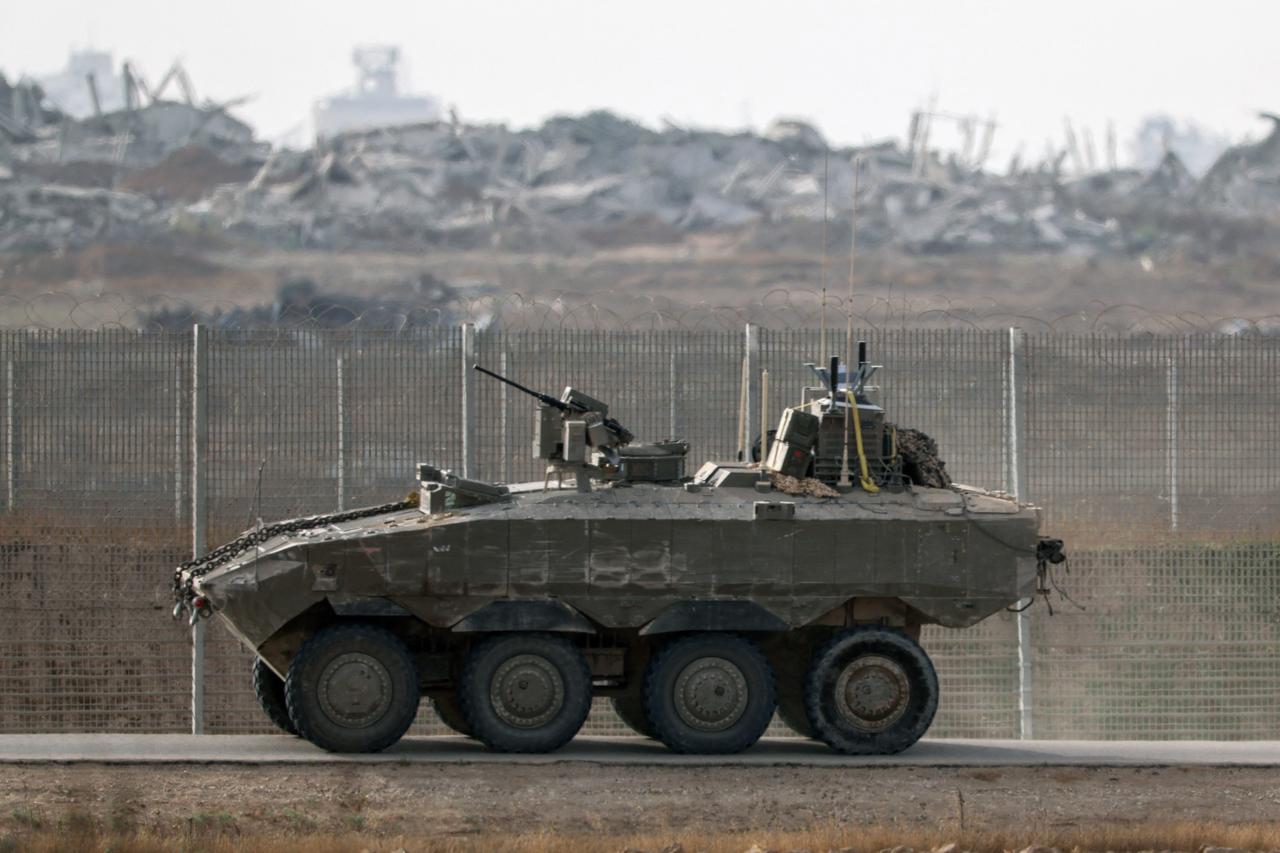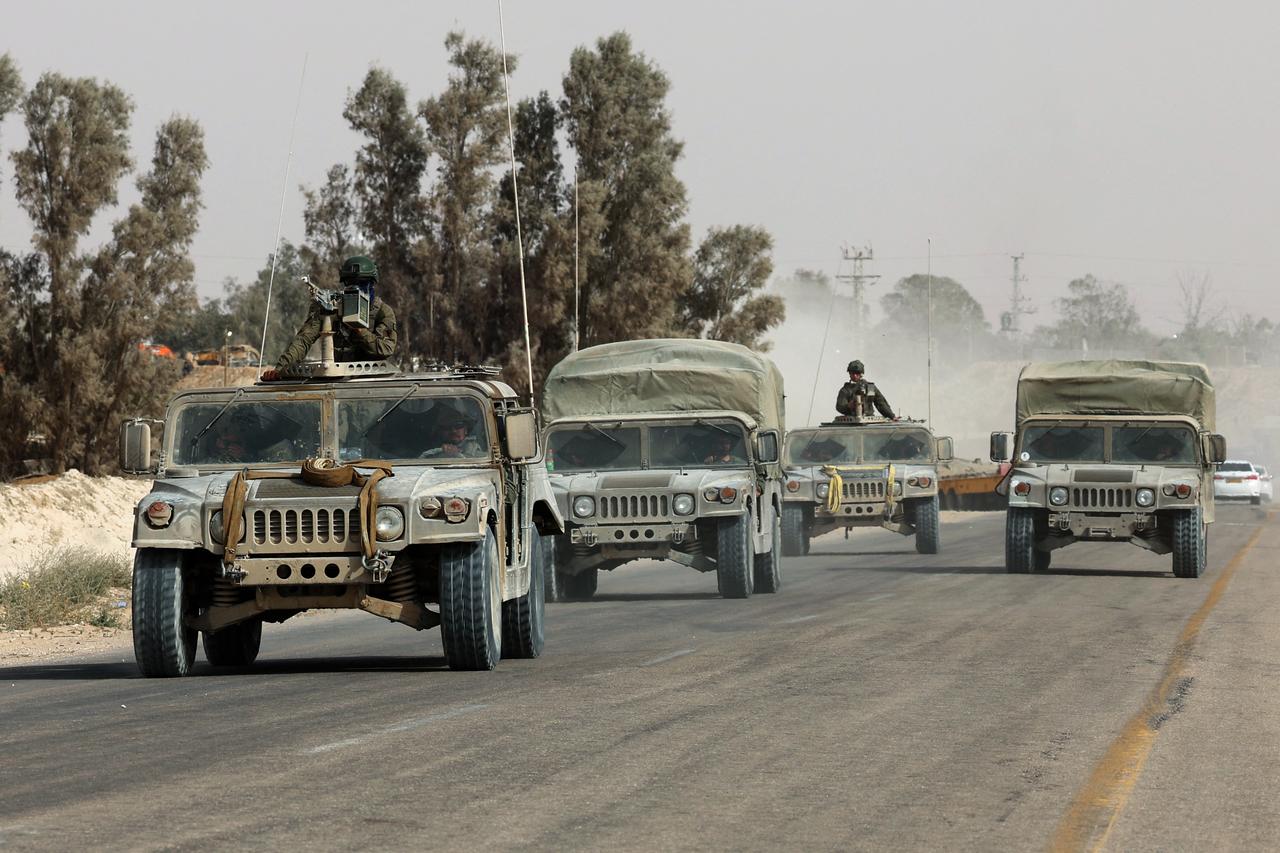
A U.N. expert said some young soldiers in the Israeli army are being left "psychologically broken" after "confronting the reality among the rubble" when serving in Gaza.
Francesca Albanese, the U.N. Human Rights Council's special rapporteur on the occupied Palestinian territories, was responding to a Sky News interview with an Israeli soldier who described the arbitrary killing of civilians in Gaza.
She told The World with Yalda Hakim that "many" of the young people fighting in Gaza are "haunted by what they have seen, what they have done."

"It doesn't make sense," Albanese said. "This is not a war, this is an assault against civilians and this is producing a fracture in many of them."
"As that soldier's testimony reveals, especially the youngest among the soldiers have been convinced this is a form of patriotism, of defending Israel and Israeli society against this opaque but very hard-felt enemy, which is Hamas," she added.
"But the thing is that they've come to confront the reality among the rubble of Gaza."
Albanese said being in Gaza is "probably this is the first time the Israeli soldiers are awakening to this." She added: "And they don't make sense of this because their attachment to being part of the Israeli army, which is embedded in their national ideology, is too strong. This is why they are psychologically broken."
Jonathan Conricus, a former Israeli army spokesman who is now a senior fellow at the Foundation for Defence of Democracies (FDD), said he believes the Sky News interview with the former Israeli army soldier "reflects one part of how ugly, difficult and horrible fighting in a densely populated, urban terrain is."
"I think (the ex-soldier) is reflecting on how difficult it is to fight in such an area and what the challenges are on the battlefield," he said.

Speaking in a rare on-camera interview with Sky News, an Israeli reservist who served three tours of duty in Gaza said his unit was often ordered to shoot anyone entering areas soldiers defined as no-go zones, regardless of whether they posed a threat.
"We have a territory that we are in, and the commands are: everyone that comes inside needs to die," he said. "If they're inside, they're dangerous you need to kill them. No matter who it is."
The soldier, who spoke anonymously, is a reservist in the Israeli army's 252nd Division. He was posted twice to the Netzarim corridor, a narrow strip of land cut through central Gaza early in the war.

The soldier said the criteria for opening fire on civilians shifted depending on the commander.
"They might be shot, they might be captured," he said. "It really depends on the day, the mood of the commander."
He described a prevailing belief among troops that all Gazans were terrorists, even when they were unarmed civilians.
"They don't really talk to you about civilians that may come to your place. Like I was in the Netzarim road, and they say if someone comes here, it means that he knows he shouldn't be there, and if he still comes, it means he's a terrorist," he said.
"This is what they tell you. But I don't really think it's true. It's just poor people, civilians that don't really have too many choices."

The soldier recalled soldiers openly discussing the killings.
"They'd say: 'Yeah, but these people didn't do anything to prevent October 7, and they probably had fun when this was happening to us. So they deserve to die,'" he said.
"People don't feel mercy for them."
The soldier said many of his comrades believed there were no innocents in Gaza, citing the Hamas-led Oct. 7 attack that killed around 1,200 people and saw 250 taken hostage. The soldier said he did not want to be identified because he feared being branded a traitor or shunned by his community. Still, he felt compelled to speak out.
"I kind of feel like I took part in something bad, and I need to counter it with something good that I do, by speaking out, because I am very troubled about what I took and still am taking part in, as a soldier and citizen in this country," he said.
"I think the war is ... a very bad thing that is happening to us, and the Palestinians, and I think it needs to be over."
Albanese also referenced her recent Human Rights Council report, which outlines what she called "an economy of genocide".
"More than 60 private sector companies ... have become enmeshed in the economy of occupation (…) that have Israel displace the Palestinians and replace them with settlers, settlements and infrastructure Israel runs," she said.
She added that companies named in the report include those in finance, big tech, and the military sector.
"These companies can be held responsible for being directly linked to, or contributing, or causing human rights impacts," Albanese said.
"We’re not talking of human rights violations, we are talking of crimes."
Among them is U.S.-based Palantir Technologies, which responded to Sky News: "It is not true that Palantir is the (or a) developer of the 'Gospel'—the AI-assisted targeting software allegedly used by the Israeli army in Gaza, and that we are involved with the 'Lavender' database used by the Israeli army for targeting cross-referencing."
"Both capabilities are independent of and pre-date Palantir's announced partnership with the Israeli Defence Ministry," the company said.